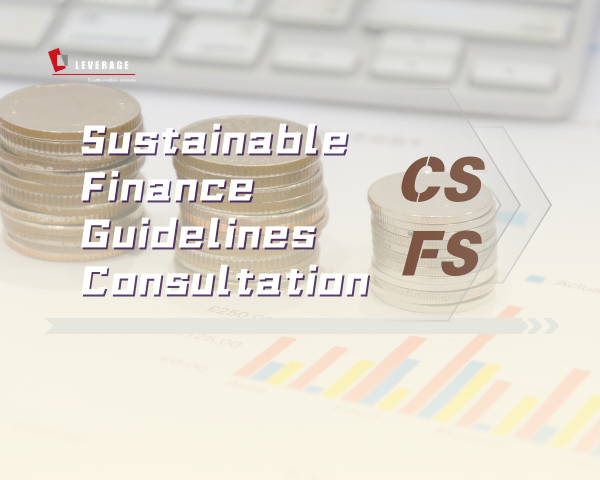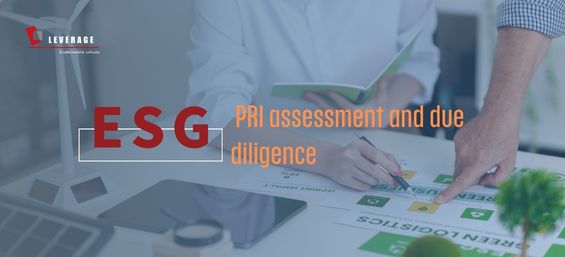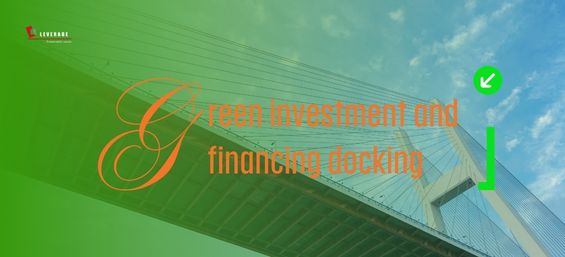Sustainable Finance Guidelines Consultation
Consultation on Sustainable Finance Standards (CSFS), as a critical component of the green financial system, is rapidly evolving worldwide and profoundly reshaping the operational models of the financial industry. Against the backdrop of increasingly severe climate change and environmental challenges, finance—as a core mechanism for resource allocation—exerts a decisive influence on global economic sustainability through its direction and standards. Consultation on Sustainable Finance Standards aims to provide financial institutions, enterprises, and investors with a scientific and unified normative framework to assist them in identifying, assessing, and managing the impacts of environmental, social, and governance (ESG) factors on financial activities. This, in turn, directs capital toward green and low-carbon sectors and facilitates a comprehensive economic and social transition.

Origins and Evolution of Consultation on Sustainable Finance Standards
The concept of Consultation on Sustainable Finance Standards traces its roots to the environmental protection movement that emerged in the 1970s. However, it gained prominence in global finance following the adoption of the United Nations Sustainable Development Goals (SDGs) and the Paris Agreement in 2015. These international agreements explicitly emphasized, for the first time, the urgent need to align financial flows with low-carbon and climate-resilient development pathways. In 2016, the G20 Summit elevated green finance to a core agenda item, marking the transition of sustainable finance from a peripheral concept to a priority in global policy-making. This historic shift prompted financial regulators and international organizations worldwide to systematically develop sustainable finance standards, giving rise to the Consultation on Sustainable Finance Standards industry.
Over the past decade, Consultation on Sustainable Finance Standards has undergone significant evolution—transitioning from fragmented initiatives to systematic approaches and from voluntary practices to mandatory requirements. In its early stages, consultancy efforts primarily centered on voluntary standards such as the Equator Principles, focusing on environmental and social risk management in project financing. With the explosive growth of innovative financial products like green bonds and ESG investments, market demand for standardized and professional consultancy services surged dramatically. Post-2020, driven by the 15th Conference of the Parties (COP15) to the Convention on Biological Diversity and the 26th Conference of the Parties (COP26) to the United Nations Framework Convention on Climate Change, the scope of Consultation on Sustainable Finance Standards expanded further to encompass broader sustainable development issues, including biodiversity conservation and just transition. Consultancy services also evolved from singular environmental risk management to a comprehensive technical service system covering green taxonomy, information disclosure, carbon accounting, product certification, and more.
Global Sustainable Finance Policy Frameworks and Standard Systems
The global sustainable finance policy landscape is characterized by EU leadership and varied development across major economies. The European Union has established the world’s most comprehensive sustainable finance standard system through a series of interconnected policies and regulations. The EU Taxonomy for Sustainable Activities, as the first systematic classification standard globally for defining sustainable economic activities, provides the foundational technical language and methodology for sustainable finance consultancy. This taxonomy clearly defines which economic activities qualify as "environmentally sustainable" and establishes detailed assessment criteria and technical screening thresholds, serving as a critical reference for consultancy agencies. Complemented by the Sustainable Finance Disclosure Regulation (SFDR), the Corporate Sustainability Due Diligence Directive (CSDDD), and the Corporate Sustainability Reporting Directive (CSRD), the EU has developed a policy system that spans the entire investment and financing process, combining mandatory and guidance-based elements, thereby providing a clear legal basis and operational framework for Consultation on Sustainable Finance Standards.
China has made notable progress in constructing its sustainable finance policy system, generating distinctive domestic consultancy demands. In 2016, the People’s Bank of China and six other ministries jointly issued the "Guidelines for Establishing the Green Financial System," which laid the top-level design for China’s green finance development. From 2024 to 2025, China sequentially introduced policy documents such as the "Enterprise Sustainability Disclosure Standards—Basic Standards (Trial)" and its application guidelines, along with the "Implementation Plan for High-Quality Development of Green Finance in the Banking and Insurance Industries," further refining the practical requirements for sustainable finance. These policies draw on international experience while fully considering the practical needs of developing economies in transition, particularly proposing targeted arrangements in innovative areas such as transition finance and carbon finance, thereby creating extensive opportunities for the sustainable finance consultancy service industry. Notably, the "Common Ground Taxonomy" co-developed by China and the EU provides a model for standard alignment in cross-border green investment and underscores the vital role of Consultation on Sustainable Finance Standards in international coordination.
Sustainable finance policy in the United States exhibits a fragmented approach between federal and state governments, introducing greater uncertainty for the consultancy market. Although a unified federal policy framework remains under development, the Inflation Reduction Act (IRA) has substantially advanced green industry development through large-scale clean energy investment tax incentives, spurring significant demand for related consultancy services. Simultaneously, pioneering efforts by state governments, such as California and New York, in areas like climate disclosure and green bond certification, have provided regional practice models for Consultation on Sustainable Finance Standards. This policy fragmentation, on one hand, increases the complexity of consultancy work, and on the other, encourages consultancy agencies to develop more flexible and adaptive service models.
Core Content and Methodology of Consultation on Sustainable Finance Standards
Sustainable Finance Taxonomy Consultancy constitutes the foundation of the entire consultancy service system. As major global economies establish their respective green or sustainable economic activity classification standards, accurately understanding and applying these technical standards has become a universal need for market participants. Taxonomy consultancy typically includes industry determination, technical screening indicator compliance assessment, and investment proportion calculation, among other specific tasks, ensuring both regulatory compliance and commercial feasibility. In complex technical areas such as defining transition activities and avoiding significant harm, consultancy agencies must provide professional judgments and solutions based on the latest scientific insights and policy directions. With the continuous refinement and updating of taxonomy standards, consistently tracking and interpreting policy changes and offering operational guidance have become core competencies for consultancy agencies.
Information Disclosure Standards Consultancy has emerged as the fastest-growing service area in recent years. As over 25 jurisdictions incorporate the Task Force on Climate-related Financial Disclosures (TCFD) recommendations into regulatory requirements, enterprises face increasingly stringent sustainability reporting challenges. Consultancy work primarily involves constructing disclosure frameworks, designing data collection systems, assessing material issues, and developing indicator quantification methods. China’s "Enterprise Sustainability Disclosure Standards—Basic Standards (Trial)" and its application guidelines clarify the relationship between sustainability information and financial statements, requiring enterprises to disclose environmental and social impacts while also analyzing the current and anticipated effects of these factors on financial position, operating results, and cash flows. This "dual materiality" principle significantly elevates the technical complexity of disclosure, prompting enterprises to rely more heavily on professional consultancy agencies. Consultancy agencies must assist clients in establishing cross-departmental ESG data governance mechanisms to ensure the accuracy, consistency, and comparability of sustainability information.
Product Certification and Labeling Consultancy serves the rapidly expanding sustainable financial product market. The robust growth of innovative products such as green bonds, sustainability-linked loans (SLL), and ESG investment funds has generated demand for independent third-party certification. Consultancy services in this domain include pre-issuance review, framework assessment, fund usage tracking, and impact report verification, all aimed at enhancing product credibility and mitigating "greenwashing" risks. Particularly in emerging areas like sustainability-linked bonds (SLB) and transition finance instruments, scientifically setting Key Performance Indicators (KPIs) and Sustainability Performance Targets (SPTs)—ensuring they are sufficiently ambitious and aligned with just transition principles—has become a focal point and challenge for consultancy services. As regulatory scrutiny of sustainable financial product marketing intensifies, the role of consultancy agencies in compliance review and risk management is further underscored.

Carbon Accounting and Climate Risk Assessment Consultancy is increasingly becoming a central tool for sustainable financial decision-making. In accordance with the Global GHG Accounting and Reporting Standard for the Financial Industry (PCAF), financial institutions must account for the carbon emissions of their financing and investment portfolios and evaluate the potential impact of climate-related risks on asset quality. Consultancy agencies provide methodological guidance, data collection and processing, scenario analysis, and stress testing services to help clients quantify physical and transition risks and integrate analysis results into strategic planning and risk management processes. Particularly in complex scenarios such as high-carbon industry transitions and investments in climate-vulnerable regions, the professional technical support and cross-sectoral experience offered by consultancy agencies are essential for informed decision-making. With the progressive implementation of the International Sustainability Standards Board (ISSB) climate disclosure standards, climate risk assessment consultancy is anticipated to sustain robust growth.


